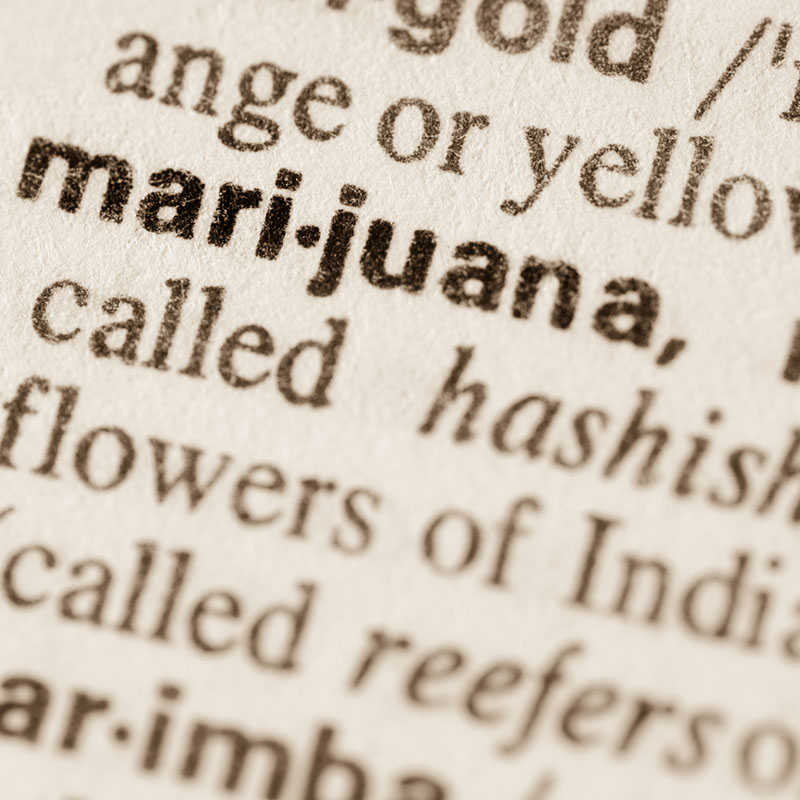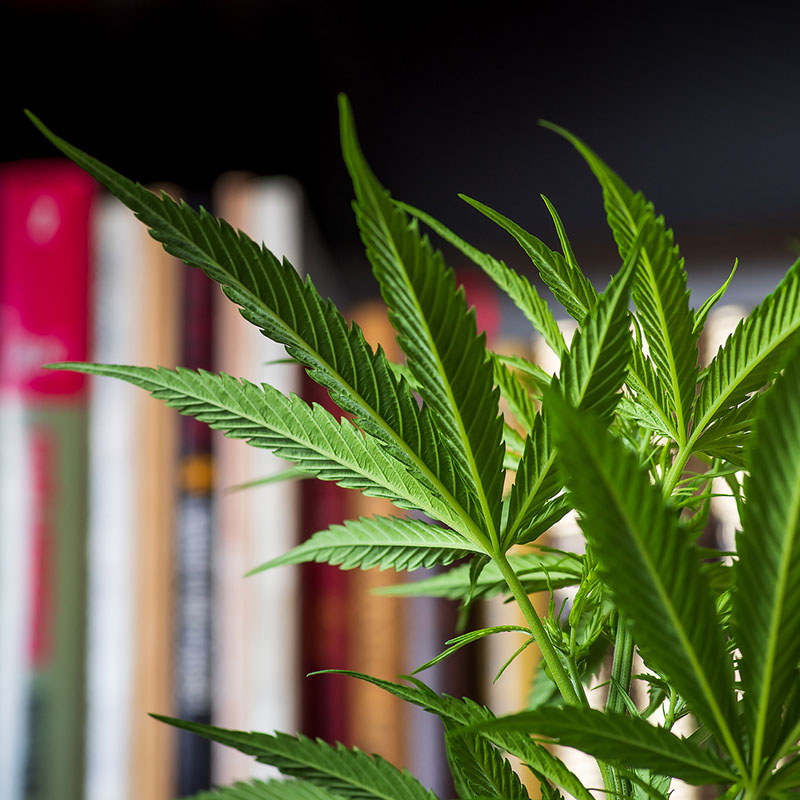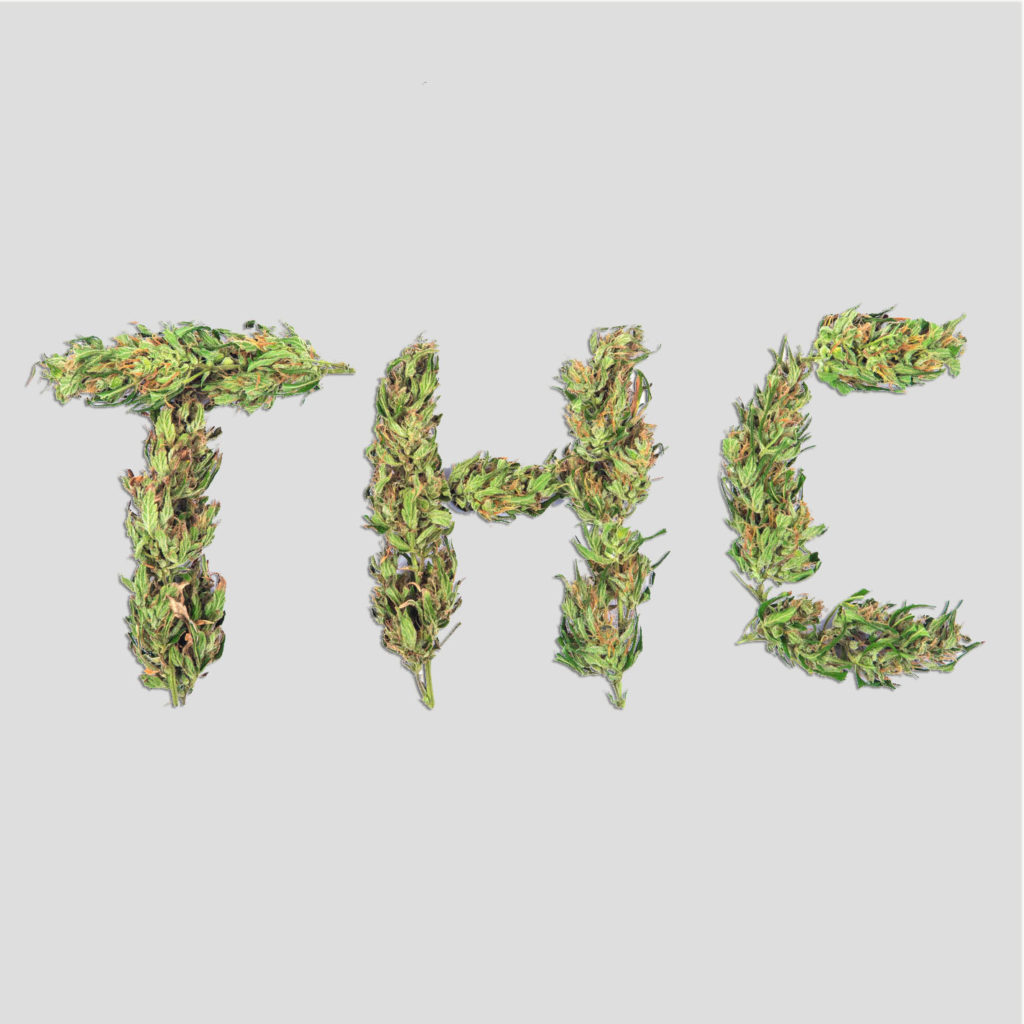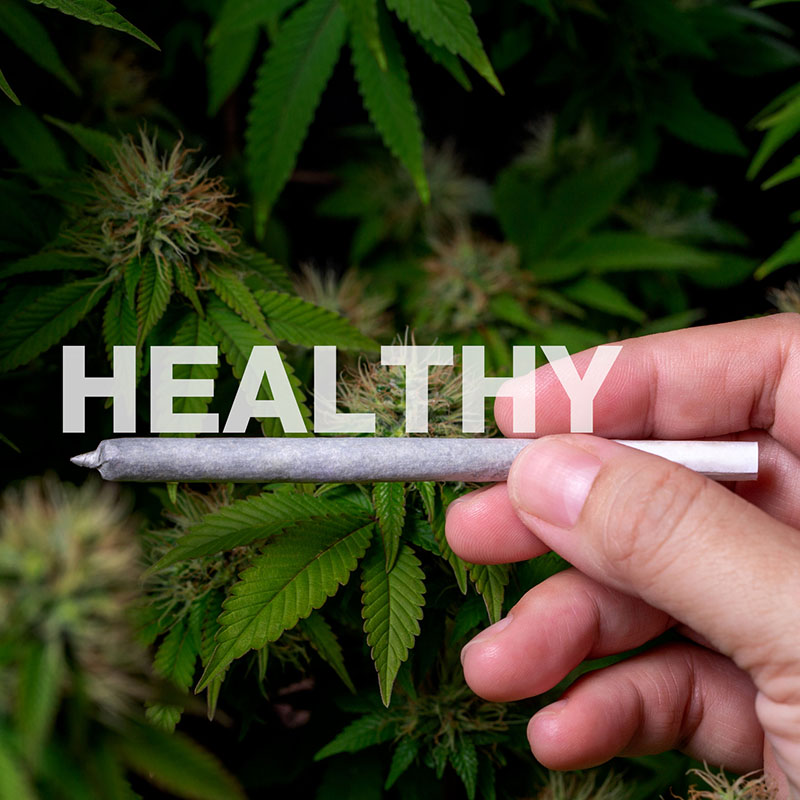The words and phrases used to refer to cannabis have shifted significantly over time. In recent history, cannabis slang came about for a purpose: as a code to discuss a plant and its use that were completely illegal at the time. Beginning with the cultural taboo in the early 20th century and continuing with the 1970s era war on drugs, cannabis users have long required creative and covert cannabis terms to avoid detection and arrest.
Why Has Cannabis Slang Evolved?
If you look back at the various terms used to refer to cannabis over the years, you’ll notice significant shifts in terminology over time. These terms were born from the fact that cannabis became federally illegal in the 1930s, forcing users to find ways to talk openly about cannabis without authority figures discovering the true meaning of the conversation. It was also necessary for the terms to change over time.
Altering slang terms meant that with the introduction of each new term, the governing authorities were forced to begin deciphering its meaning all over again. For that reason, cannabis slang terms often changed quickly before anyone caught on. Others proved to have staying power over the decades, which is one reason there are so many slang terms for cannabis today.
Even among those cannabis terms that have stuck within the common lexicon, there are a few that have become “socially acceptable”—so much so that they are used in news media, legal circles, and even government legislation. The origin of some of these terms has resulted in debates regarding the best candidate for the official name of the plant.
Common Cannabis Slang Terms
Lexicographers have identified over 1,200 words currently or formerly used to refer to cannabis, including but not limited to marijuana, ganja, grass, bud, muggle, thirteen, dank, Nixon, rainy day woman, reefer, and locoweed. Of course, some of those are used more frequently than others, but there have been a variety of terms that have cropped up even in recent years. Here’s a handful of the most interesting cannabis slang terms used throughout the last century.
Cannabis
As a part of the scientific term for all plants in this genus, cannabis is the term most commonly used within the industry. Perhaps more effectively than marijuana, the term cannabis evokes the medicinal capabilities of the cannabis plant and also allows professionals to refer to the scientific properties it holds. Cannabis is the most popular term outside of the US, as well as the most common term used in legal documents and legislation, though, as mentioned, some states continue to use marijuana in place of cannabis.
Marijuana
Fun fact: marijuana is considered a slang term for the cannabis plant.
Before the turn of the 20th century, the plant was referred to mostly by its scientific name, Cannabis sativa L. At the time, marijuana referred more specifically to the portions of the plant with psychoactive compounds—or THC, the compound that gets you “high”—rather than the functional uses of the plant.
The word marijuana could have been derived from the Panamanian word managuango or the Spanish word mariguano, both of which mean “intoxicant.” Or from the Nahuatl word “mallihuan,” meaning “prisoner.” Some experts even believe that the term was simply a clever mashup of two popular Mexican women’s names.
Whatever the derivation, the word and the plant may have come to the United States with Mexican immigrants after the Mexican Revolution.
 Photo from Getty Images
Photo from Getty Images
Originally Posted On: https://muvfl.com/post/cannabis-terms
Unfortunately, along with the plant came dubious reports of horrific incidents involving users of Mexican “locoweed.” These stories locoweed wasn’t an innocent plant—it was capable of inspiring insidious crimes, from theft to murder. Once marijuana became associated with the criminal element, both Mexico and the United States began cracking down on cannabis use with legislation designed to outlaw the plant. By the 1930s, legislators had effectively passed this fear on to Americans—and passed laws making cannabis an illegal drug. The association between marijuana and its supposedly low-class immigrant users stuck around for decades.
Weed
Weed is arguably one of the most popular terms for cannabis, especially among the Millennials, who make up the largest cannabis market demographic. Interestingly enough, the second-largest demographic—Gen X—prefers to use the term pot instead. Still, you won’t likely find these terms used in professional circles, as they’re used colloquially versus in legislation or legal documents.
Mary Jane
This term has both a visual and auditory connection to the term marijuana. Both Mary Jane and MJ are a result of the proper Spanish pronunciation of marijuana. Pronounced correctly, the ‘i’ in marijuana sounds like an ‘ee,’ as in the name Mary. Juana, then, is a common Spanish first name that is the Spanish approximation of the name Jane. This slang term would’ve followed right on the heels of the term marijuana in the early 20th century.
Giggle Smoke
During the 1930s, the slang phrase “giggle smoke” became popular . It was the Jazz Age, a period dominated by a movement commonly associated with youth marijuana use. At the time, law enforcement was working to ban what they deemed a dangerous narcotic—incidentally, a view that has still not changed on a federal level, according to the Drug Enforcement Administration. The slang term giggle smoke came about as 1930s cannabis users described the act (smoking cannabis) and the psychoactive effects.
Jive
The term jive is most associated with the 1936 jazz song “Here Comes the Man with the Jive” by Stuff Smith and his Onyx Club Boys, but the slang term for cannabis predates this song by several years. In the 1930s, jive referred to cannabis, but by the 1950s, the term was usually used to refer to heroin or drugs in general.
Hash
The word hash is derived from the Arabic word “hashish,” or “grass.” Hashish is the resin extracted from cannabis flowers and can be sifted by hand through a grater or screen or by ethanol or chemical extraction. Though hashish is a type of highly concentrated cannabis, the term hash is sometimes used to refer to cannabis in general.
 Photo from Getty Images
Photo from Getty Images
Pot
The phrase came into use in the 1920s and was still growing in popularity in the Jazz Age of the 30s and 40s. It’s derived from the Mexican word “potiguaya,” which is a contraction for portación de guaya, or “the wine of grief.” The term originally referred to an alcoholic drink made by soaking cannabis leaves in alcohol like wine or brandy.
Dope
Initially, the term “dope” referred to opium products like morphine. Then, for some time, it was used to broadly refer to any drug. By the 1950s, dope was predominantly used to refer to cannabis. Fairly quickly, though, dope became a term used to describe heroin rather than cannabis. As opiates became more available, the slang term referred almost entirely to illicit opiates.
Catnip
This term is a little unique. Catnip isn’t just a term for any cannabis—this is a term for when you’ve been sold particularly bad or even fake marijuana. In the 1960s, being “catnipped” meant you’d been sold a mixture of catnip and cannabis, or sometimes just catnip. This term died out around the 1980s.
Skunk
It’s not hard to imagine where this term originated. Cannabis strains that emerged in the 1970s, in particular, were especially pungent and made this term even more poignant. Plenty of strains nowadays have the same sweet and skunky smell. Skunk, as a slang term, was often used to refer to cannabis in general, not just those specific strains. There are certainly cannabis strains that live up to the name to this very day.
What Is the Correct Term For Cannabis?
In recent years, the debate regarding the correct term for cannabis has intensified. To make matters more complicated, even “official” sources present conflicting views on the subject. For example, US state governments remain divided on the topic, with many choosing to use the term cannabis in their relevant legislation and many others choosing to use the term marijuana instead.
For years, the common advice was that the term you use is a matter of preference. In non-professional spaces, people often chose to use the slang terms that were most common when they were teenagers. However, if you’re discussing cannabis in professional circles, including journalism, medicine, law, and more, you’ll likely encounter some guidelines particular to your employer or your state’s chosen legal term.
For the most part, professionals caution that it’s important to pay attention to the source—who is using a particular term, and why have they chosen it? For example, companies and distributors in the industry often base their terminology on cannabis’ legal status in the state as well as cultural and other considerations that can influence the perception of their product.
 Photo from Getty Images
Photo from Getty Images
Perhaps even more importantly, it’s critical to consider that many slang terms for cannabis have their roots in cultures of people who are routinely targeted by cannabis criminalization.
At the same time, Mexican immigrants were associated with dangerous marijuana use, and immigrants from China and India were also targeted by legislators looking to outlaw cannabis. As mentioned above, African Americans were also negatively associated with cannabis culture during the jazz age. Since these terms were once culturally charged, it’s a bit surprising that many states continue to use the term marijuana in their official legislation.
While many advocates caution against eliminating the term “marijuana” entirely, some argue that we would erase the important influence of Mexican culture on cannabis culture. It’s important now to move forward with an accepted term recognized across the US and around the world. Cannabis is not only representative of the plant’s scientific name, Cannabis sativa L., but also eliminates anynegative cultural connotations. It is the most accepted term worldwide, especially within professional and legal settings, and is now the official term used in the cannabis industry.
Strainprint: Cannabis Slang Meets Community Effort
 Photo from Getty Images
Photo from Getty Images
Cannabis s has evolved for several reasons. The advocacy for cannabis has never changed. It’s the reason so many people celebrate cannabis products today. Imagine sharing your cannabis excitement and experience with other enthusiasts and getting awarded for sharing your insight. Our strain assessment program improves our collective knowledge about how various cannabis products work for specific conditions. Because this work has value for cultivators, producers, physicians, and patients alike, patients are rewarded.
The Future of Cannabis Slang
As we move into the future with cannabis, it is becoming more widely accepted for medical and recreational purposes every day. As a result, it will become less necessary to refer to cannabis using code names. That doesn’t mean, however, that the creativity of the cannabis community must also end.
Slang can be used to show community support, comfort, familiarity, enjoyment, or even to explain your experience with cannabis.




